HR managers often hear about Workable but aren’t sure if it’s the right fit for their team or hiring goals. With so many features to consider, evaluating the software can feel overwhelming. Backed by years of analyzing SaaS platforms, our team has reviewed Workable in depth to help cut through the noise. This article explores its key strengths, a few drawbacks, and how it supports efficient, modern hiring—so you can decide if it’s the right match for your needs.

What are the pros and cons of Workable?
HR teams today face growing pressure to deliver faster, more strategic hiring outcomes. The average time-to-fill is now 44 days, according to SHRM, and every delay affects productivity and business growth.
At the same time, candidate expectations are rising. A LinkedIn report shows 75% of job seekers research a company’s brand before applying, and 60% abandon complex or slow application processes. Poor communication, inconsistent evaluations, and lack of team coordination often lead to missed talent.
Remote and hybrid work have added complexity. HR must now support hiring across time zones, languages, and legal systems—all while maintaining compliance. Manual tools like spreadsheets or scattered systems only slow teams down.
Top Uses of Data in the Hiring Process
To increase retention: 56
To increase retention
%To evaluate skill gaps: 50
To evaluate skill gaps
%To build better offers: 50
To build better offers
%To understand what candidates want: 46
To understand what candidates want
%To do workforce planning: 41
To do workforce planning
%To predict candidate success: 39
To predict candidate success
%To assess talent supply and demand: 38
To assess talent supply and demand
%To compare talent metrics to competitors': 31
To compare talent metrics to competitors'
%To forecast hiring demands: 29
To forecast hiring demands
%Source: Careerbuilder
Designed byTo stay competitive, companies need smarter HR software tools that centralize recruitment, automate tasks, and support collaboration. Solutions that combine efficiency with user-friendly design are no longer a luxury—they’re essential for modern hiring success.
What is Workable?
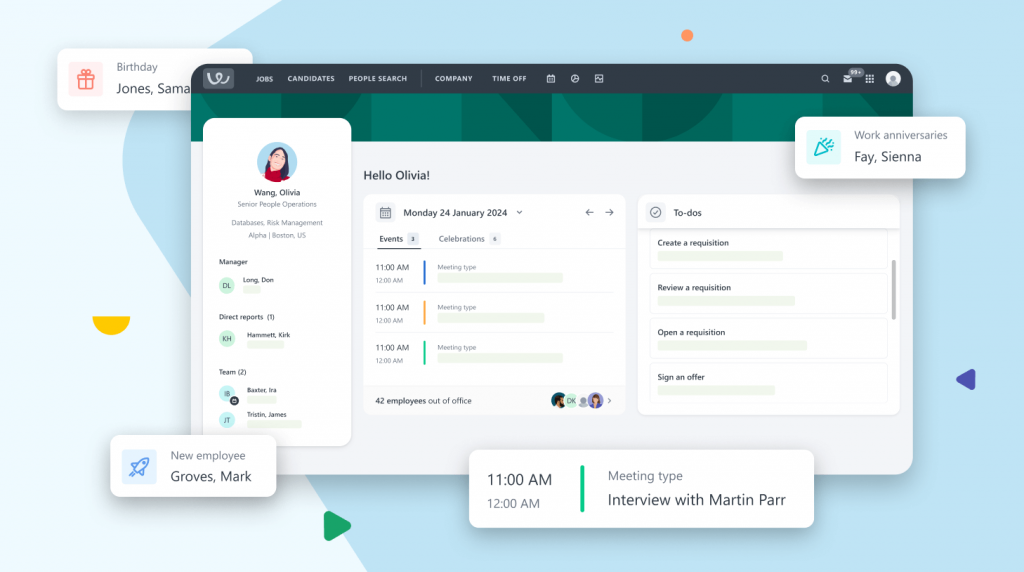
Workable is hiring software built for speed, simplicity, and scalability. Its key strength is delivering powerful recruitment tools in an intuitive platform that teams can start using with minimal training.
It’s ideal for small to mid-sized businesses but flexible enough to support larger organizations with more complex hiring needs. Whether you’re filling a single role or managing high-volume recruitment, Workable adapts to your process.
With automated sourcing, one-click job postings, and centralized candidate tracking, it helps reduce time-to-hire and eliminate manual admin work. Teams can collaborate efficiently with shared evaluations, interview kits, and structured workflows.
The HR management software supports every stage of hiring, from sourcing and screening to offer and onboarding. It includes AI-powered candidate recommendations, customizable pipelines, built-in scheduling, and digital offer letters with e-signatures. Compliance tools and access to global job boards make it especially useful for those aspiring to become the best HR manager.
Workable integrates with popular tools like Slack, Microsoft Teams, Zoom, Google Workspace, BambooHR, and leading background check providers—making it easy to connect with your existing HR stack.
Pricing is flexible and subscription-based, with custom quotes based on hiring volume and team size. Mobile apps for iOS and Android let you review candidates, comment, and take action—anytime, anywhere.
Pros and Cons of Workable
1. All-in-One Hiring Platform
Many HR teams struggle with juggling multiple tools—email threads, spreadsheets, separate interview schedulers, and job board accounts. This scattered workflow leads to missed communications, delayed decisions, and poor candidate experiences.
Workable eliminates this chaos by offering an integrated hiring solution. From posting jobs to making offers, every step happens in one centralized platform. Recruiters can post to over 200 job boards with a single click, schedule interviews, collect team feedback, and track candidates through custom pipelines—all without switching tools.
This all-in-one approach is not entirely unique, but Workable stands out by balancing simplicity with powerful functionality. It’s designed to scale with teams, making it useful for small businesses and large HR departments alike.
One limitation worth noting is that Workable requires a company website for some job posting features. But what self-respecting company has no web presence these days? For most teams, the system delivers strong value by saving time, improving coordination, and reducing hiring costs through streamlined operations.
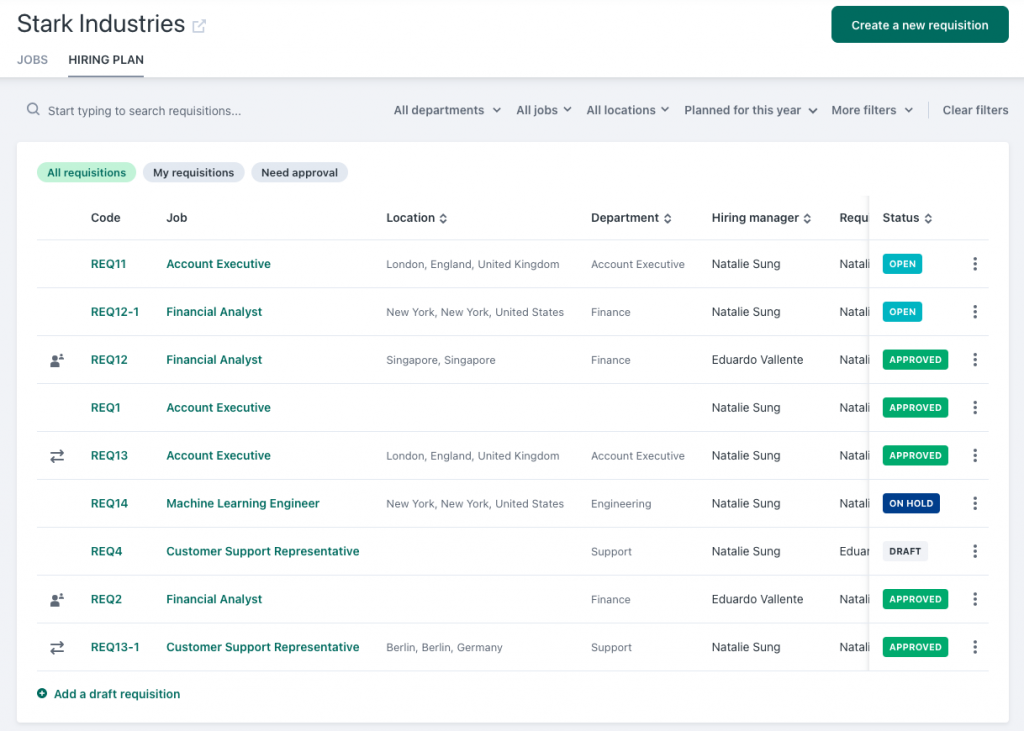
Workable’s hiring plan dashboard
2. AI-Powered Candidate Sourcing
Sourcing top talent quickly is one of the biggest hurdles for HR teams, especially when roles require specialized skills or industry experience.
Common Hiring Challenge
Finding qualified candidates is time-consuming. Sourcing manually across platforms can take hours each day, especially for niche or high-level roles.
Workable’s Solution
Workable’s AI Recruiter scans a talent pool of over 400 million profiles to suggest candidates that match your job description. The tool learns from your preferences and past hires to improve recommendations over time.
Why It Matters
- Speeds up sourcing dramatically
- Expands reach beyond active applicants
- Improves candidate quality by targeting passive talent
- Reduces reliance on expensive external recruiters
That said, the AI can occasionally overlook relevant candidates. Like any machine learning tool, it’s not always perfect in matching profiles to roles. Still, the speed and reach it offers far outweigh this occasional shortfall.
While other HR platforms offer AI sourcing, Workable’s depth of access to global candidate databases and automation makes it a strong contender. You save both time and cost per hire, which adds measurable value to your HR processes.
Without this tool, sourcing remains a manual, repetitive task that pulls your team away from more strategic efforts.
3. Customizable Hiring Pipelines
Custom workflows help HR teams maintain consistency while adapting to the unique needs of different roles. Without customizable pipelines, your hiring process can become inconsistent, slow, and difficult to manage across teams.
Workable allows you to build job-specific pipelines. You can define stages like phone screen, technical interview, team panel, or background check—tailored to each role.
What makes this feature valuable?
-
Ensures standardized evaluations across departments
-
Reduces bottlenecks by visualizing progress
-
Supports automated actions at each stage
-
Keeps hiring timelines predictable
Some users have noted that the workflow navigation can be slightly clunky. For example, when moving candidates through stages, the screen doesn’t always update intuitively, leading to occasional user error. While not a dealbreaker, it’s something to be aware of when handling high volumes of applicants.
Still, you don’t have to force-fit every job into a rigid hiring structure. Workable lets you mirror your team’s actual workflow.
While other applicant tracking systems offer some level of customization, Workable’s ease of use and flexibility set it apart. It allows HR teams to adjust quickly to changing hiring needs without technical support.
Inefficient alternative? Manually tracking candidates through spreadsheets or generic tools, which often leads to dropped candidates or duplicated efforts.
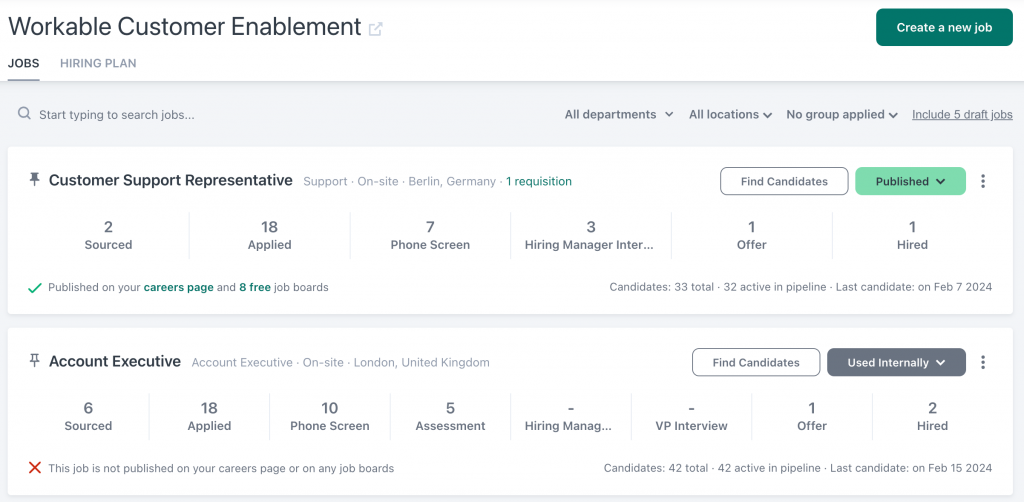
An overview of the hiring process on Workable.
4. Collaborative Tools for Teams
Workable makes team collaboration during hiring seamless. That’s especially important when multiple stakeholders are involved in reviewing candidates, conducting interviews, and making final decisions.
Here’s how Workable supports teamwork:
- Shared candidate evaluations: Everyone sees the same profile, notes, and resumes in one place.
- Interview kits and scorecards: Standardized criteria help teams compare candidates fairly.
- Comment threads: Real-time discussions keep decisions moving without messy email chains.
- Hiring roles and permissions: Control who sees what, based on role.
One area for improvement is the inability to leave comments or email candidates unless they’re attached to a job. This restricts proactive engagement with passive candidates or internal notes about prospects who aren’t yet part of an open requisition. It’s a limitation for teams focused on long-term talent tracking.
Having said that, these tools improve hiring quality by giving teams a structured way to discuss candidates. They also speed up decisions by centralizing feedback.
Other platforms may offer similar collaboration features, but Workable’s user-friendly interface and integrated feedback tools make it easier for busy teams to stay aligned.
Without such tools, collaboration becomes fragmented. Feedback gets lost in inboxes or delays the hiring process entirely.
5. Global Compliance and Hiring Support
Hiring internationally can be complex. HR teams must navigate different labor laws, contract structures, and job board networks.
Workable supports global hiring by offering access to international job boards, multilingual templates, and tools for ensuring local compliance. It also offers integration with background check providers and e-signature tools to keep hiring fast and secure.
Why this matters:
- Reduces legal risks
- Helps expand your hiring reach
- Speeds up onboarding for remote teams
- Saves time on legal reviews and manual processes
Workable’s global tools are particularly valuable for growing companies looking to scale across borders without building a local HR presence in each region.
This feature set is not entirely unique, but the combination of compliance, sourcing, and onboarding tools in one place gives Workable a competitive edge.
Relying on separate systems—or worse, manual compliance tracking—opens your team to costly errors and slower hiring cycles.
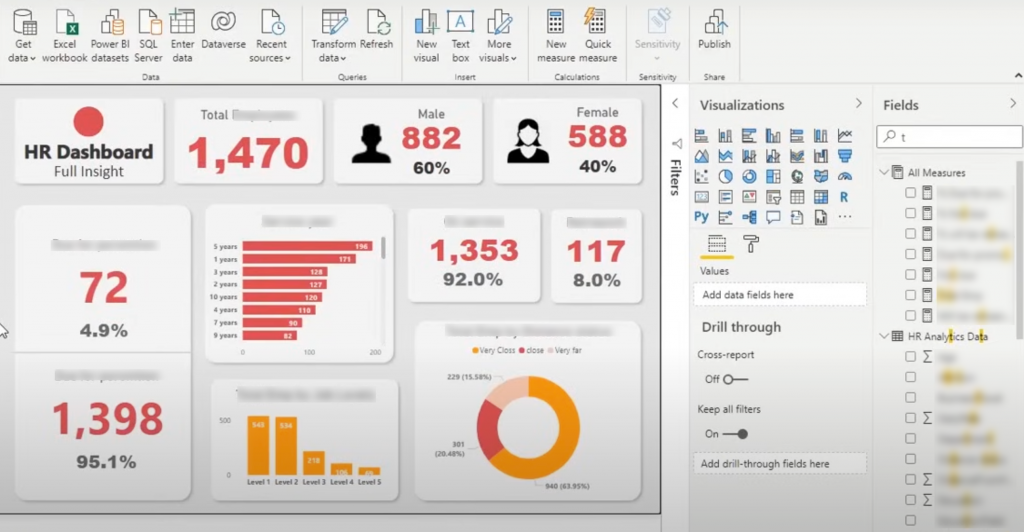
View your Workable data on Power BI.
Ideal for Busy HR Teams or Scaling HR Needs
Workable offers a well-rounded solution for teams looking to streamline hiring, reduce manual work, and improve collaboration. While it has a few limitations, its strengths in automation, customization, and global support make it a valuable tool for modern HR. For growing businesses or busy HR teams, it’s worth trying Workable to see how it fits your hiring workflow.


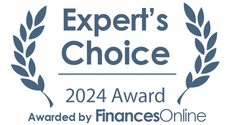
























Leave a comment!